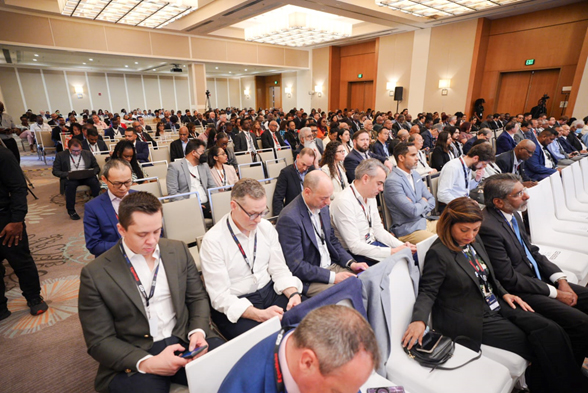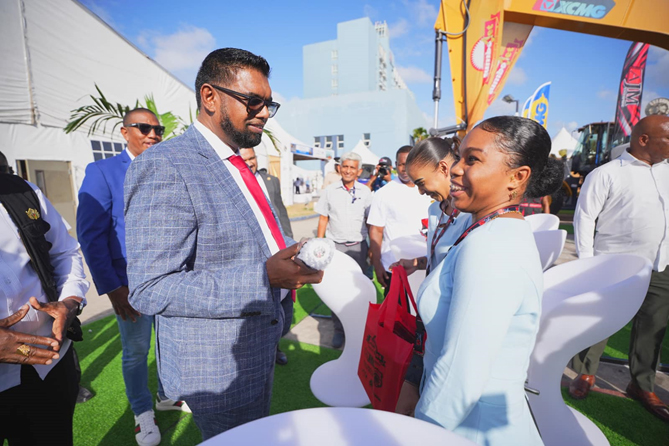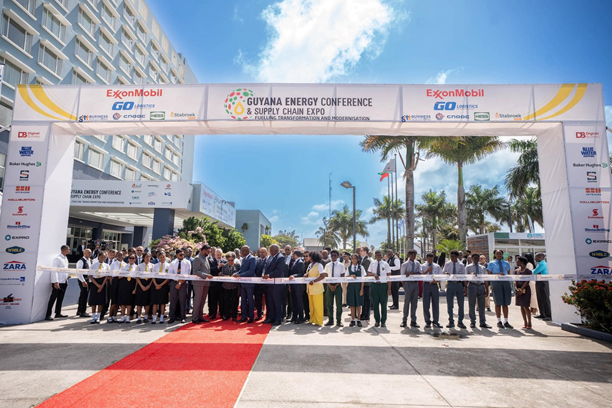For a country which, not many moons ago, had been labeled the ‘sick man’ of the Caribbean, Guyana’s seeming ‘miracle cure’ has now become not just the loudest ‘noise’ that the region has made since the boisterous collective expressions of optimism that had come with the end of colonial rule and subsequent political independence, but, as well, one of the more promising global hotspots for investment anywhere in the world today. If the sense of societal wobbliness currently manifested in a widespread strike by teachers whose salary levels are yet to come even close to reflecting the country’s petro fortune, indications are that the international community is beginning to see past what still remains largely a circumstance of poverty for the country as a whole. For Guyanese workers, the enhanced material fortunes that they are continually being told will come with the country’s oil bonanza, could hardly come too soon.


This much is reflected in the fact that news about a prevailing ‘sticky’ industrial relations climate brought about by the teachers’ ongoing industrial action appeared to have done little to keep potential investors away. A sizeable contingent of business interests from within and without the region made their presence felt in Guyana this week, all seeking to probe the potentially hugely lucrative investment opportunities that the country now has on offer. Guyana, as one commentator told the Stabroek Business, has become “the most enticing bazaar in the Caribbean for international investors.” In the presence of a roomful of politicians, influential businessmen and other dignitaries, Guyana’s President Irfaan Ali had his third tilt at delivering the feature address at what, arguably, has become the region’s standout business profile insofar as global business interest is concerned.
In his address to the current forum, President Ali said that he wanted, “to focus on situating Guyana’s energy development within the wider context of the country’s development trajectory, so that investors and stakeholders can appreciate that our energy plans are consistent and in conformity with our chosen development pathway. Collaboration is always achievable when stakeholders are in harmony,” the President said. Conversations between potential investors and Guyana government officials deriving from that pronouncement are almost certain to be the key ‘takeaways’ from the forum.
If ‘oil and gas’ has drawn international attention to Guyana in a manner that nothing before the country’s petro fortune has ever done, it has also helped to win the country the regional recognition which, over the years and for one reason or another, has always been elusive. One indicator that oil has caused Guyana to now enjoy an enhanced recognition among its CARICOM partners came with the announcement by Caribbean Export Executive Director Dr. Deodat Maraj during the investment forum that in July this year, Guyana will, for the first time, host the Caribbean Investment Forum, arguably the most important regional forum for business collaboration and development in the region. From the standpoints of both domestic pride and regional recognition, Guyana is likely to treat this development as a ‘big deal’ since the responsibilities associated with execution will stand alongside what will be an opportunity to win a much greater measure of serious attention from the rest of the regional business community.
That oil now serves to create more than small shifts in international media perceptions of Guyana and what it stands for is reflected in the fact that the investment forum and more particularly, President Irfaan Ali attracted the attention of sections of the international media, not least the global media and technology company, Bloomberg LP, which describes itself as “a high tech, market moving, data driven, cross platform, information company that provides business and financial information, news and insight around the world.” In its interview with President Ali, the widely monitored media company dealt with both the prospects of oil as the vehicle for Guyana’s economic transformation as well as the implications of Venezuela’s recently ‘revived’ territorial claim against Guyana for the country’s pursuit of its oil-driven development trajectory.
It is as much the exchanges that follow the opening ceremony as the formalities themselves that would have been the essence of the event. The remaining formalities will proceed alongside bilateral meetings during which investment portfolios are likely to be unfolded for the scrutiny of appropriately designated state officials. Some visitors are also likely to peruse Georgetown, a capital city virtually turned upside down on account of ongoing work to seek to offer visitors a more convivial environment than that which still obtains up to this time.








